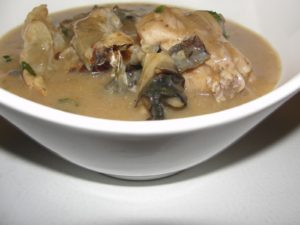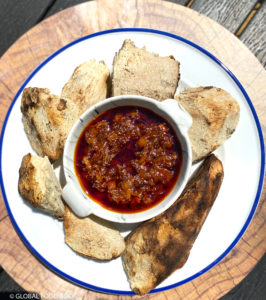Food is more than just putting something in the body. It’s a fundamental part of our lives that brings people together, and satisfies our cravings. It is inevitable to man and the delicious fuel that keeps us going! Food is not only about eating to survival, but also about pleasure, culture, and creativity. It encompasses a wide range of flavors, and aromas that delight our senses. Food has the power to evoke emotions, create memories, and connect us to different cultures and traditions. No human on earth can survive without food because food is humanity. it has been in existence since the creation of man.
Food is not just about satisfying our hunger; it’s also a way to express our creativity, culture and tradition to the world. Different regions and countries have their own unique cuisines, flavors, and cooking techniques that reflect their traditions and history. Food brings people together, whether it’s a family gathering, a dinner with friends, or a community celebration. It has the power to create connections and foster a sense of belonging.
Moreover, food has a significant impact to us as humans and even animals. It provides essential nutrients and energy for our bodies to function properly. A balanced and nutritious diet is key to maintaining good health and preventing diseases. But food is not just about being healthy; it’s about enjoying the flavors that make eating an enjoyable experience.
Different aspect of food incorporates; cultural significance, health benefit, and the art of cooking. Food holds immense cultural significance. It serves as a tool to understanding different cultures and their traditions. Every culture has its own unique culinary heritage, which includes traditional dishes, cooking techniques, and dining customs. Food is a way for people to connect with their roots, preserve their heritage, and pass down recipes from generation to generation. It carries the history and identity of a community.
In many cultures, food plays a central role in celebrations and rituals. Festivals and holidays often have specific dishes associated with them, showcasing the cultural values and beliefs of a community. For example, in Chinese culture, dumplings are a must-have during the Lunar New Year, symbolizing wealth and good fortune. In India, people celebrate Diwali, the festival of lights, by enjoying a variety of sweets and snacks that signify joy and prosperity.
In many cultures, meals are a time for gathering, storytelling, and laughter, creating lasting memories and fostering a sense of belonging. For example, yams have a deep-rooted significance in the culture of Onitsha, a city in southeastern Nigeria. Yam have been a staple crop in the region for centuries, and they hold great cultural importance. In Onitsha, yam is not just a source of feeding but also a symbol of wealth, fertility, and prestige. People often associate them with celebrations, festivals, and rituals.
The Igbo people, the predominant ethnic group in the region, trace the history of yam food in Onitsha. Yam cultivation has been a traditional practice among the Igbo for generations. The Igbo people have developed various dishes centered around yam.
One popular yam dish in Onitsha is “Nniji,” which is a pounded yam dish. Peeling, boiling, and pounding yam tubers to a smooth consistency requires skill and strength. People often perform this process using a mortar and pestle, serving the resulting pounded yam with a variety of soups and stews, such as ofe nsala (white soup), ofe onugbu (bitter leaf soup) or oha soup.

Another notable yam dish in Onitsha is “Ji oruru,” which is roasted yam. Yam slices are roasted over an open fire until they become soft and charred on the outside. This method of preparation enhances the natural sweetness and flavor of the yam.
Iwa Ji, the New Yam Festival are celebrated in Onitsha and other Igbo communities. These festivals are an occasion to give thanks to the gods for a bountiful harvest and to showcase the importance of yams in the community. During the festivals, everyone come together to eat, enjoy music, dance and other interesting cultural performances.
African food is incredibly diverse and rich in flavors. Many traditional African dishes offer unique health benefits. written below are few examples: Plantains are starchy fruits are a staple in many African cuisines. They are a great source of dietary fiber, vitamins A and C, and potassium. Plantains can support digestive health, boost the immune system, and help regulate blood pressure.
Also, Okra is a vegetable that is commonly used in African soups and stews. It is low in calories and high in fiber, which aids in digestion and promotes a feeling of fullness. Okra is also rich in vitamins C and K, as well as antioxidants that support overall health. Moringa is superfood that is native to Africa and is known for its exceptional nutritional value. Moringa leaves are packed with vitamins, minerals, and antioxidants. They can help boost energy levels, support immune function, and promote healthy skin and hair.
Egusi soup is traditional Nigerian dish that is made with melon seeds and various vegetables. It is a good source of protein, healthy fats, and essential vitamins and minerals. Egusi soup can provide a balanced and nutritious meal, supporting overall health and well-being.
Food has a special way of evoking nostalgia, comfort, and celebration in Africa. The continent’s rich and diverse culinary traditions, deeply rooted in history, culture, and community, reflect a preparation of traditional dishes with love and care in many African countries, using recipes passed down through generations. These dishes often carry a sense of nostalgia, reminding people of their childhood, family gatherings, and special occasions.
For example, in Nigeria, jollof rice is a beloved dish that is often served at weddings, birthdays, and other festive events. The aroma of the spiced rice, the vibrant colors, and the flavors of tomatoes, onions, and various spices can transport people back to joyful celebrations and create a sense of comfort and belonging.
In South Africa, a braai (barbecue) is a cultural tradition that brings people together. Sizzling meat on the grill, the laughter and conversation filling the air, and the taste of flavorful marinades and sauces together create a festive atmosphere deeply ingrained in South African culture.
In West Africa, people often enjoy fufu, a staple dish, with a variety of soups and stews. The process of pounding yam, plantain, or cassava to create a smooth and elastic dough requires skill and effort. The act of sharing a communal bowl of fufu, dipping it into flavorful soups, and enjoying it with loved ones creates a sense of unity and celebration.
Food in is not just about nourishment; it is a way to connect with one’s roots, honor traditions, and celebrate life’s milestones. Whether it’s the enticing aroma of grilled meat, the delightful taste of a well-spiced stew, or the vibrant colors of a traditional dish, food possesses the power to evoke powerful emotions. Consequently, it has the ability to create lasting memories of joy, comfort, and celebration.
You know what’s amazing? Mindful eating! It’s all about savoring each bite and truly enjoying the flavors and textures of the food. It’s like having a party in your mouth. When we eat mindfully, we pay attention to the whole experience of eating. We take the time to appreciate the aroma, the colors, and the presentation of the food. We chew slowly and savor each bite, allowing ourselves to truly taste and enjoy the flavors.
Minding eating not only enhances the enjoyment of our meals but also foster the development of a healthier relationship with food. By being present in the moment and turning in to our body’s hunger and fullness cues, we can make better choices and avoid overeating.
Therefore, the next time you sit down for a meal, try to be mindful. Put away distractions, take a deep breath, and really savor each bite. Trust me, it’s a delicious way to appreciate the simple pleasures of life!




